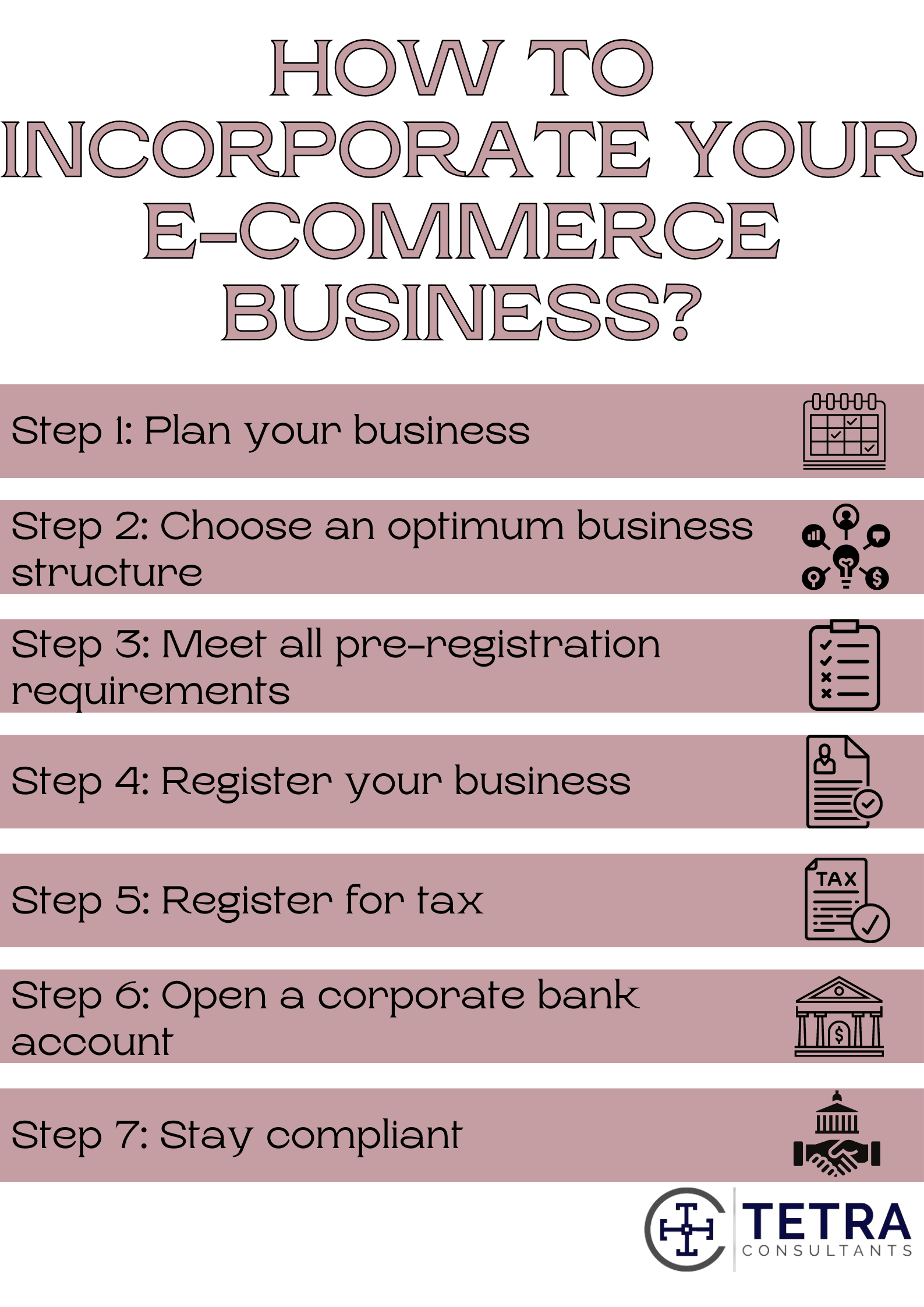South Korea is the sixth-largest e-commerce market with a revenue of US$ 74 billion in 2020. This can be attributed to the high internet usage rate of approximately 92% in the country. The e-commerce market in South Korea continues to grow at a compound annual growth rate of 19.92% over the period from 2021 to 2025. The Covid-19 pandemic has accelerated the growth in the e-commerce market as consumers shift to online marketing to reduce contact with the public.
In this article, we highlight some of the regulations that you must keep in mind before incorporating your e-commerce business in South Korea.
Regulations for e-commerce business in South Korea:
The South Korean government has imposed various policies in order to better regulate the e-commerce industry. More specifically, the National Assembly of Korea is the government body that is responsible for policies relating to online businesses. Besides this, the Korea Communications Commission (KCC) and the Korea Fair Trade Commission (KFTC) are additional government bodies that can introduce certain policies under the E-commerce Act.
The following are some of the policies that businesses must keep in mind before opening an e-commerce platform:

- Act on the Consumer Protection Act in Electronic Commerce (E-Commerce Act):
The Consumer Protection Act protects the rights and interests of the consumers by enforcing certain policies relating to the electronic transactions of goods and services in order to gain market confidence and prevent unfair business practices.
Any individual or business that sells products or services through mail or telecommunication facilities must act in accordance with this Act.
- Personal Information Protection Act (PIPA):
The Personal Information Protection Act protects the personal data and information of customers. It stresses the use, collection, and transferring of this data. Under the PIPA, the e-commerce business must obtain permission from the customers to collect personal data and also inform them how this data will be utilised. South Korea has adopted the guidelines on the Protection of Privacy and Transborder Flows of Personal Data introduced by the OECD.
- Framework Act on Electronic Commerce:
The Framework Act on Electronic Commerce was introduced by the government to ensure the validity of all online transactions through the use of electronic documents. This will facilitate a safer and more trusting fair trade.
- Fair Labelling and Advertising Act:
Introduced in 1999, the Fair Labelling and Advertising Act prevents false and deceptive product labelling and advertising and guarantees that the customers have access to accurate and relevant information.
- Electronic Financial Transaction Act:
The electronic financial transaction act regulates the use of online transactions to ensure reliability and security. It also requires businesses to register with the Financial Services Commission.
- Consumer Protection Guidelines for Electronic Commerce:
Introduced in 2000, the Consumer Protection Guidelines for Electronic Commerce is based on the Guidelines for Consumer Protection in the Context of Electronic Commerce created by the Organisation of Economic Cooperation and Development (OECD).
- Network Act:
Under the Network Act, businesses are not permitted to provide any “illegal information” which includes information that is obscene, that creates anxiety, violates national security, or more.
There is a large number of government policies that e-commerce businesses must be aware of before incorporating their business in South Korea. The above are some of the policies that you need to be compliant with. Tetra Consultants will inform you about the other policies that you will be required to meet in order to conduct your business in the country without any hassle.
How to incorporate your e-commerce business in South Korea?
The process to set up an e-commerce business remains the same as for one in any other industry. For a smooth and hassle-free process, you can follow these steps:
Step 1: Plan your business:
- The first step is to decide the goods or services you wish to offer to your customers online.
- You need to make this decision on the basis of your knowledge base, skill set, and resources you have at your disposal.
Step 2: Choose an optimum business structure:
- Based on your business activities, needs, and long-term business goals, Tetra Consultants will advise on the best-suited legal entity for your business.
- Some of the available legal entities that you can choose from including the following:
- Limited Liability Company (Yuhan Hoesa)
- Joint Stock Company (Chusik Hoesa)
- General Partnership (Hapmyeong Hoesa)
- Limited Liability Partnership (Hapia Johap)
- Branch Office
- Representative Office
- Free Zone Company
Step 3: Meet all the pre-registration requirements:
- Tetra Consultants will check for the availability of your preferred business name and reserve the same with the relevant authorities.
- We will assist you in obtaining a suitable local office address, which is a requirement for all businesses.
- We will also assist you in preparing all the relevant incorporation documents including the Articles of Incorporation, Proof of local address, Proof of identification, and more. We will then get them notarised on your behalf.
Step 4: Register your business:
- Tetra Consultants will submit the prepared documents to the Korean Registration Office to register the business.
- Once approval is received, we will collect the Business Registration Certificate, Memorandum and Articles of Association, and other incorporation documents on your behalf and courier them to your preferred address.
- Since these documents will be in Korean, you can employ our translation service.
Step 5: Register your business for tax:
- Tetra Consultants will register your business for tax with the District Tax Office.
- The Tax Office can also provide you with necessary business licenses. Our team will inform you of all the licenses you may need to obtain.
Step 6: Opening a corporate bank account:
- Our banking team will leverage our extensive banking network to open a corporate bank account for your business.
Step 7: Staying compliant with government requirements:
- Even after the incorporation of the business is completed, Tetra Consultants will ensure your business’s compliance with the local laws by preparing financial statements, filing annual returns, and more.












